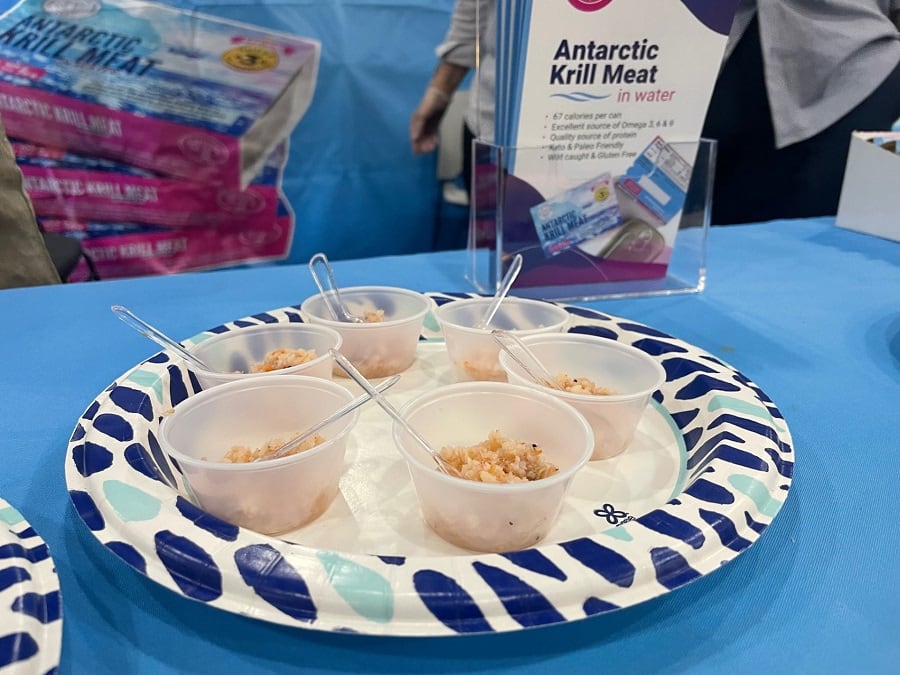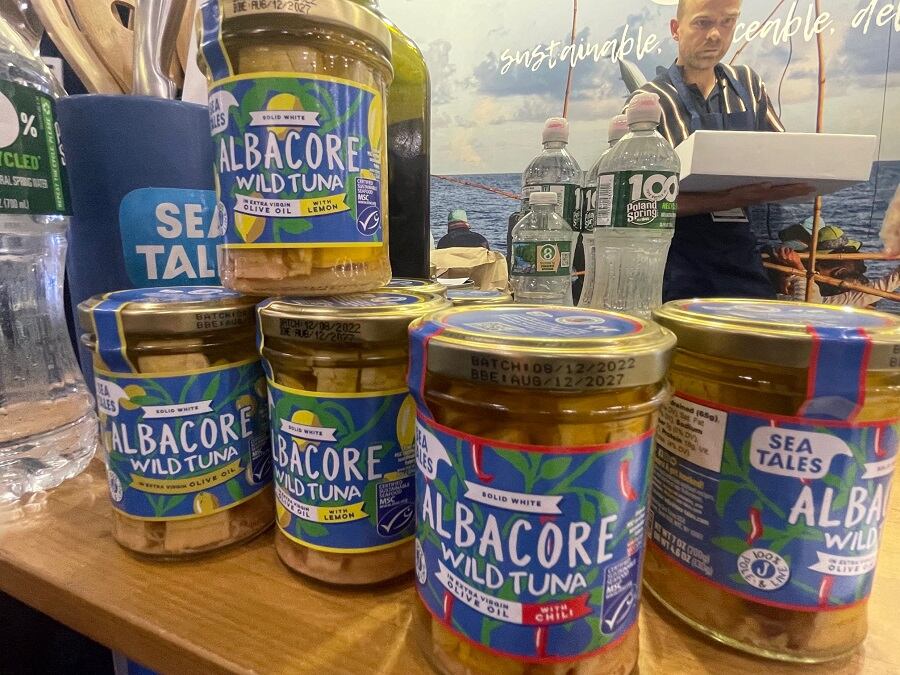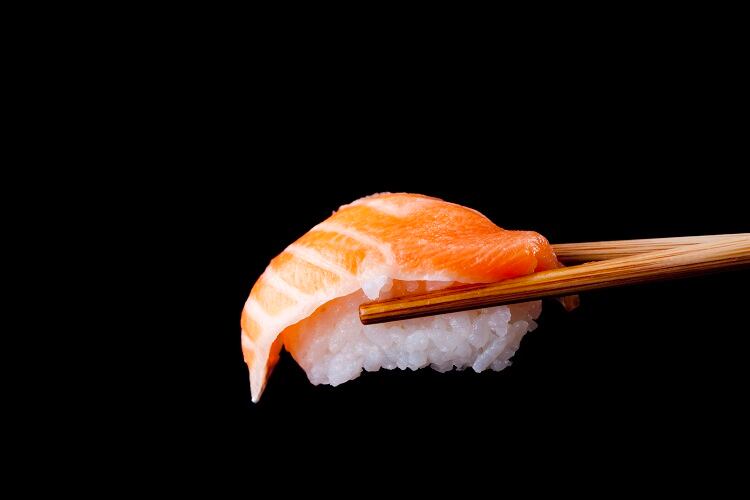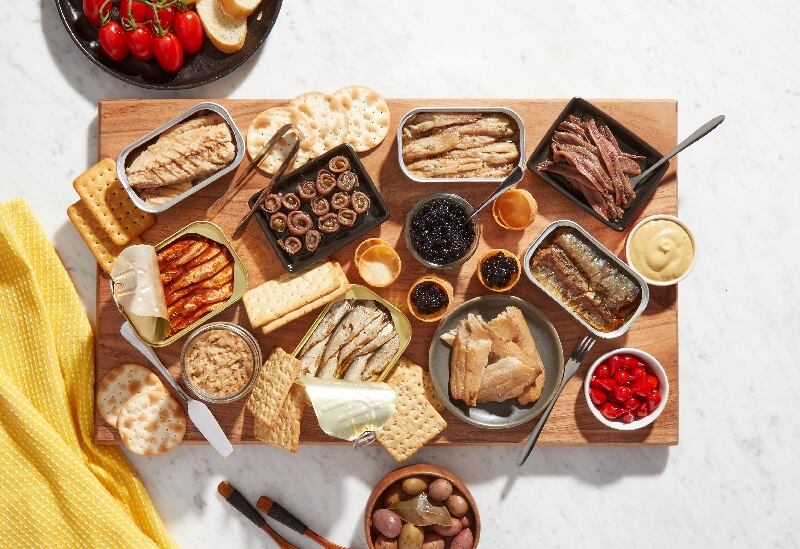Driven by consumer preferences towards nutrition, shelf stability and affordability, the canned seafood market is expected to grow to $162 billion by 2030 (compared to $30 billion in 2020) according to a Bloomberg Intelligence Report. The outlet even dubbed anchovies and sardines as “climate solution in a can,” referring to fisheries producing less emissions than land agriculture.
Given the challenges aluminum manufacturers faced in the last few years from inflation, high interest rates and the conflict in Ukraine, among others, canned seafood companies, which operate on thin margins, were severely impacted. However, companies had some breathing room at the beginning of 2023 as aluminum prices declined, giving consumers an opportunity to restock their pantries.
A focus on canned krill, tuna, salmon and sardines
While canned tuna, salmon, anchovies, oysters and sardines are popular classics, Krill Arctic Foods (KAF) featured its canned Antarctic Krill Meat in Water at the show. Shrimp-like crustaceans that are typically nutritious for marine mammals and fish species, KAF’s krill meat contains 15 grams of protein, four grams of carbohydrates, one gram of fat and 67 calories in a 105 gram can. While KAF showcased its canned krill for retail and institutional buyers, the company also offers wholesale frozen krill meat, krill oil and krill powder.
KAF’s krill is sourced in accordance with the Commission for the Conservation of Antarctic Marine Living Resources (CCAMLR) “to ensure and promote the health and sustainability of the krill population in the Antarctic Ocean,” according to the company’s website.

Sustainability impacts consumers' seafood choice
While sustainability initiatives and labels are a mainstay for seafood brands, for consumers, sustainability impacts seafood choice, although considerably varied based on FMI – The Food Industry Association’s Power of Seafood survey.
The study found that “specific considerations from consumers include whether their purchase is caught or raised in a way that ensure availability for future generations (32%), conservation of essential fish habitats (31%) and if workers are treated fairly/humanely (31%),” as previously reported in FoodNavigator-USA.
Sea Tales focuses on strengthening small-scale fisheries around the world
FMI’s report also found that in terms of sustainability, 32% of consumers considered whether their purchase is caught in a way that ensures availability for future generations, 31% considered conservation of essential fish habitats and 31% considered if workers are treated fairly/humanely—all underscoring the value seafood brands place on communicating ESG initiatives.
Working with local, small-scale fisheries around the world, the Sea Tales' messaging focuses on sustainability and transparency to build awareness of how the fish are sourced and distributed. With a focus on traditional and sustainably-sourced canned fish, the brand featured popular products like its Solid Light Skip Jack Wild Tuna in Water, Sardines in Extra Virgin Olive Oil with Lemon, Albacore Wild Tuna in Extra Virgin Olive Oil and Smoked Atlantic Salmon at the show.
Fish Tales Foundation was established to support fishing communities and sustain healthy oceans, particularly in developing countries. With projects in Indonesia, Vietnam and Maldives, their goal is to “increase the global supply of sustainable fish,” according to the website.




